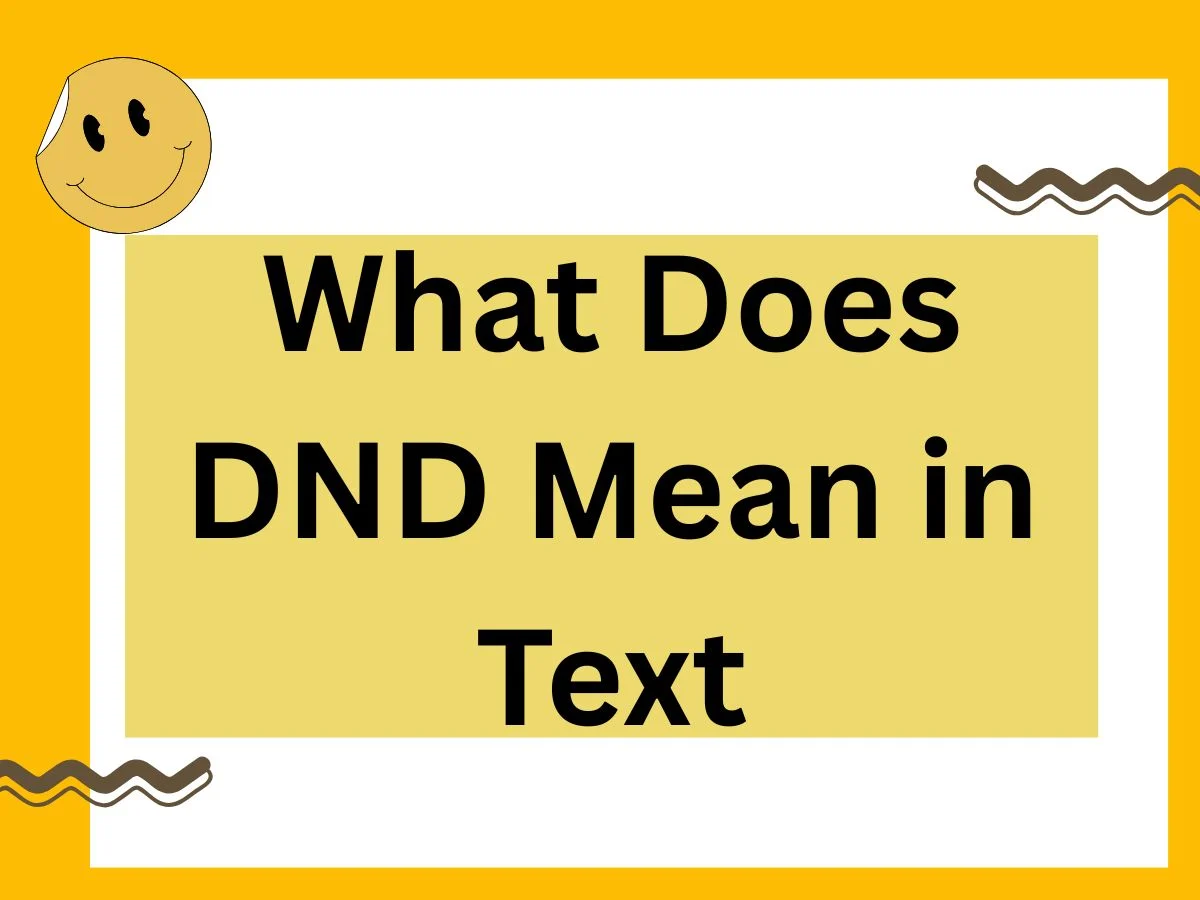Language in the digital world moves fast. One day you’re just getting used to “BRB” and “TTYL,” and the next, your phone lights up with “DND” in a message.
🔥 Rizz Line Generator 🔥
If you’re here, it’s because you’ve seen DND pop up in texts, group chats, or social media captions and wondered: What exactly does it mean, and how should I respond?
In this ultimate 2025 guide, we’ll explore every current meaning of DND, how to decode it in real-world conversations, and provide you with 10 polished, flexible alternatives to use in casual, polite, and professional contexts.
By the end, you’ll be able to:
- Recognize the correct meaning of DND in any situation
- Adapt your own responses to match tone and relationship
- Avoid misunderstandings that could lead to awkward exchanges
The Main Meanings of DND in Text (2025 Update)
While DND is far from a brand-new acronym, its current 2025 uses have expanded far beyond the original meaning. The four most common interpretations are:
1. Do Not Disturb (Primary and Widely Used)
This is the default meaning in texting, especially when linked to mobile notifications or status updates. It’s used to signal that someone doesn’t want to be interrupted—either for focus, rest, or personal space.
Example in a message:
“In a meeting right now, DND until 4 pm.”
In this sense, it’s both practical and polite—a quick way to let others know you’re intentionally unavailable.
2. Day and Night Discussion (Niche but Rising in 2025)
Among Gen Z and Gen Alpha social media circles, DND is starting to take on a more conversational tone—meaning an ongoing, around-the-clock chat with someone close.
It’s a playful nod to the idea of talking “day and night” without interruption.
Example:
“We’ve been on DND lately—talking nonstop for hours.”
3. Dungeon & Dragons (Gaming Context)
Gamers frequently use DND as shorthand for Dungeons & Dragons, especially in group chats and event planning messages. In 2025, the popularity of tabletop role-playing has surged again thanks to livestreamed campaigns and celebrity involvement.
Example:
“DND night at my place. Bring snacks.”
4. Dare Not Disclose (Privacy-Focused Use)
A less common but notable interpretation: DND can be a playful or mysterious way to indicate withholding details. It’s a subtle “I’m not telling you,” often used in a teasing or flirtatious way.
Example:
“Where are you heading?”
“DND 😏”
How to Interpret DND Correctly
The same three letters can mean completely different things depending on context, relationship, and platform. Here’s how to assess quickly:
- Check the surrounding conversation – If it’s about schedules or activities, “Do Not Disturb” is most likely.
- Consider the sender’s personality – A gamer might be talking about Dungeons & Dragons; a close friend might mean “Day and Night Discussion.”
- Notice the tone – If there’s playful mystery or emojis, it might be “Dare Not Disclose.”
- Watch the platform – Professional messaging tools (like Slack) almost always use DND literally, while Instagram DMs could lean toward slang or personal meanings.
When to Avoid Using DND
While it’s short and efficient, DND can cause confusion if your recipient doesn’t know which meaning you’re using. Avoid it:
- In formal work emails (spell it out instead)
- With people who may not be familiar with texting acronyms
- In situations where clarity is more important than brevity
Polite, Professional, and Casual Alternatives to DND
If you want to communicate “DND” but match your message to the right setting, here are 10 refined alternatives—each one naturally fitting into different tones.
Polite Alternatives
- Please don’t disturb me right now “I’m finishing up an important task—please don’t disturb me right now.”
- I’m unavailable at the moment “I’m unavailable at the moment, but I’ll reply later.”
- I’ll get back to you soon “I’ll get back to you soon—just tied up with something important.”
- Can we talk later? “Can we talk later? I’m in the middle of something.”
Professional Alternatives
- Currently in a meeting “Currently in a meeting—will respond after 3 pm.”
- Engaged in focused work “Engaged in focused work. I’ll check messages after lunch.”
- Unavailable for the next hour “Unavailable for the next hour—deadline crunch.”
- Please hold all calls/messages “Please hold all calls/messages until the session ends.”
Casual / Friendly Alternatives
- Busy RN (right now) “Busy RN, talk later.”
- Hold up, I’ll ping you later
“Hold up, I’ll ping you later when I’m free.”
Ten Premium Example Sentences
These examples showcase how you can replace DND with a context-fitting phrase while keeping your tone clear.
- “I’m taking a short break—please don’t disturb me for the next 20 minutes.”
- “Unavailable at the moment, but I’ll circle back to you by the end of the day.”
- “Currently in deep focus mode, will respond after I finish this report.”
- “I’m tied up with calls until noon—can I reach you afterward?”
- “Please hold any updates until after the client meeting.”
- “In gaming mode tonight—no interruptions, please.”
- “Taking personal time this evening—will respond tomorrow.”
- “I’m offline for now, but I’ll check messages before bed.”
- “Working on a high-priority task—chat later.”
- “I’m stepping away from my phone for a bit, but I’ll get back to you.”
How to Choose the Best Alternative
Selecting the right replacement for DND comes down to three quick checks:
- Audience – Friends might get slang; clients need clarity.
- Urgency – If it’s a temporary break, say when you’ll be back.
- Tone – Keep it light for casual use, direct for professional contexts.
2025 Slang Note: Why DND Is Here to Stay
Unlike many acronyms that fade, DND has two things working for it: utility and adaptability. It’s short, instantly recognizable to most people, and works in multiple contexts. The rise of focus modes on smartphones and increased remote work mean “Do Not Disturb” is more relevant than ever.
Plus, with niche meanings like “Day and Night Discussion” growing in popularity among younger users, DND continues to stay fresh, evolving to fit new digital habits.
Final Thoughts
DND in text can mean “Do Not Disturb,” “Day and Night Discussion,” “Dungeons & Dragons,” or “Dare Not Disclose.”
The meaning changes with context, platform, and tone—so always read the room before you reply or use it yourself.
If you want to communicate availability—or the lack of it—without risk of confusion, the alternatives listed here will help you maintain clarity, professionalism, and the right emotional tone.
Whether you’re telling a friend you need space, a colleague you’re busy, or teasing someone with mystery, understanding DND ensures your message is always clear.





